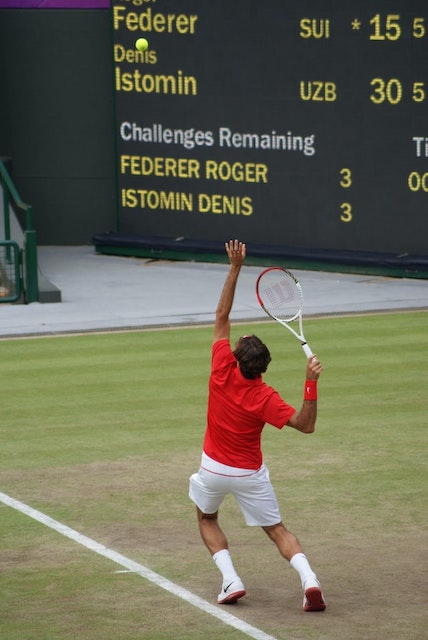.
「好きなショットは、フォアハンドかな。小さい頃から好きだった。だから、すべてのポイントを獲得してきたのはこのフォアハンド・ショットなんだ。」
“My favorite shot is always gonna be the forehand. It used to always be my favorite shot when I was young, so it’s the one I’ve won all the points with.”
.
.
「確かに試合や、その他もろもろで体には負担がかかります。でも、少し年をとって、少し賢くなり、少し経験を積めば、それにどう対処すればいいかもわかるようになる。」
“Obviously, matches and all that stuff takes its toll on your body and so forth. But as you get sort of a bit older, a bit wiser, and a bit more experienced, you know also how to handle it.”
.
.
「使う言語が違うと、違うキャラクターになることがあって、それを楽しんでいます。答えが変わることがあるんですね。自分のことなのに、そんなこと知らなかった、みたいな。実は、いろいろな言語を通して、自分を知ることができるんです。」
“Sometimes I am a different character in different languages. I have different enjoyment from them. Sometimes different answers come out of me. Like, I didn’t even know that about me. I get to know myself through different languages, actually.”
.
.
「サーブかな、一番難しいのは。いろいろ上手くまとめるという意味でね。二つの腕を動かして、いいタイミングでトスしないといけないので。」
“The serve, I think, is the most difficult, you know, in terms of coordination, because you got the two arms going, and you got to toss it up at the right time so.”
.
.
「若い頃、むしろ幼い頃ですが、からだもとても小さかったので、良いサーブを決めるには十分な力もなかった。だからフォアハンドが得意なショットでした。それでいつもバックハンドを中心に、できるだけフォアハンドを使うようにしていました。それが今の強みになったと思うんです。」
“The serve, I was too young and too small and… not enough powerful to have a good serve when I was young, so my forehand was always my signature shot. So I used to always run around my backhand, you know, use my forehand as much as I could, and so that’s why I think it’s my strength also today, you know.”
.
.
「今年考えてたのは、大きい試合では、もう少し相手のミスを待つよりも、もっと相手を攻めてやるってことなんです。そう、ウィンブルドンで勝ちたいなら、できるって信じて自分自身のショットを求めることなんだろう。今日それができた結果(の優勝)なんです」
“This year I guess I decided in the bigger matches to take it more to my opponent instead of waiting a bit more for the mistakes. Yeah, this is I guess how you want to win Wimbledon, is by going after your shots, believing you can do it, and that’s what I was able to do today.”
.



コメント